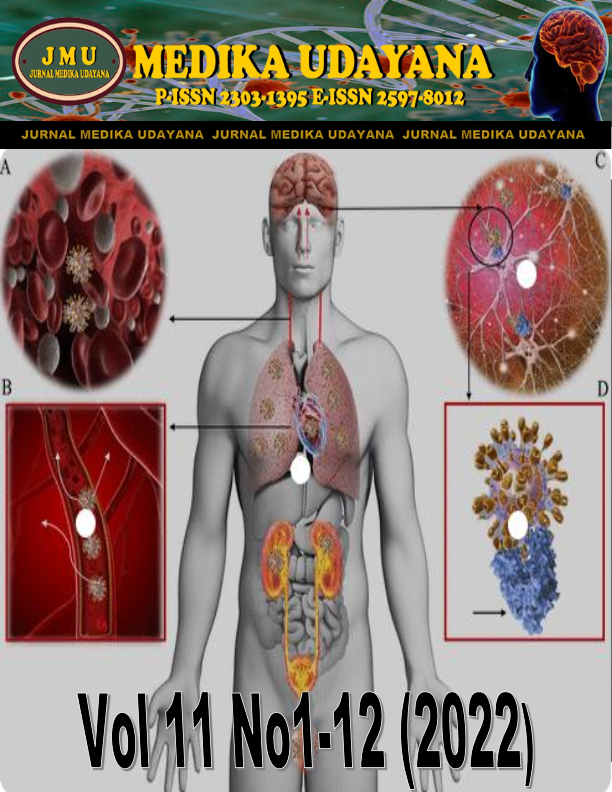Factors that Affect Quality Of Life of Post Mastektomic Breast Cancer Patients at Sanglah Hospital
Abstract
Background: Breast cancer is a malignancy of breast tissue that starts from the lobules or epithelial glands of the breast, where cancer cells grow out of control. Quality of life is a functional representation of physical, psychological, and social responses. Breast cancer affects a person's quality of life which is influenced by various factors, so it is necessary to conduct further research on the quality of life of post-mastectomy breast cancer patients at Sanglah Hospital to determine the quality of life of post-mastectomy breast cancer patients at Sanglah Hospital. Methods: This research is a cross sectional descriptive analytic study with primary and secondary data collection. The sample collection technique is total sampling with inclusion and exclusion criteria considerations, in order to obtain 92 respondents who then answered the EORTC QLQ-C30 questionnaire which was distributed for 3 months (July-September). The variables measured included quality of life, age, KPS, education level, occupation, stage, therapy, economic condition, and physical activity of breast cancer patients. Results: This study was analyzed by univariate, bivariate, and multivariate. From 92 respondents, the quality of life of breast cancer patients was found to be functional in good condition, symptoms and complaints were in poor condition, and overall quality of life and health were in good condition. In the bivariate analysis, therapy, occupation, physical activity, and KPS affect quality of life. In multivariate analysis, KPS affects the condition of symptoms and complaints, and physical activity affects the condition of quality of life and overall health. Conclusion: The quality of life of post-mastectomy breast cancer patients at Sanglah Hospital is generally in good condition, but there are several factors that affect the quality of life of post-mastectomy breast cancer patients at Sanglah Hospital.
Keywords : Breast cancer, quality of life, questionnaire EORTC QLQ-C30











